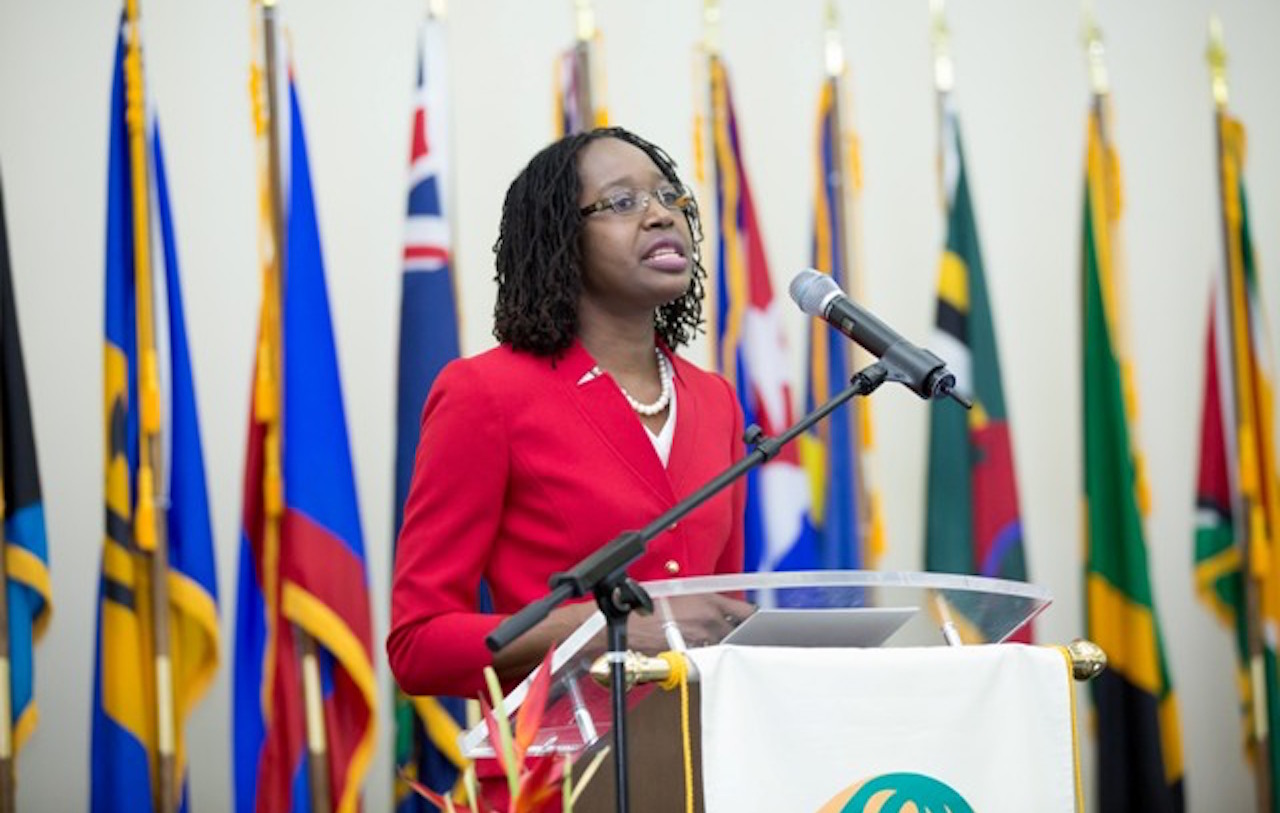Top Caribbean disaster preparedness officials have warned that countries could expect some delay in hurricane disaster response if the COVID-19 pandemic drags on through the hurricane season. But they have insisted that adequate measures are in place and response protocols and systems are being ramped up.
Elizabeth Riley, the acting Executive Director of the Caribbean Disaster Emergency Management Agency (CDEMA), gave the assurance on Thursday afternoon as she briefed regional journalists in association with the Caribbean Broadcasting Union.
The officials acknowledged that Barbados and other Caribbean countries are faced with a multi-hazard situation including drought, threats from an overactive hurricane season, the pandemic and existing social and economic challenges.
Riley said with those issues in mind, CDEMA has been working closely with its partners to ready the necessary systems.
She told journalists: “A regional response team comprising of about 140 trained personnel are on standby if required. Each team includes Caribbean operational support team [and] our Caribbean damage assessment and coordination team.
“We have also put in place contingency arrangements for the delivery of services through the CARICOM Disaster Relief Units.”
The COVID-19 pandemic caused the cancellation of the annual training of the 2020 military and paramilitary teams. But the approximately 70 people from the 2018 and 2019 teams would be available to provide what is called surge support for countries, the CDEMA boss said.
Based on the experience of hurricanes Irma, Maria and Dorian, discussions were ongoing to see how officials could arrange a specialized team to provide psychosocial support, Riley said. Psychosocial teams provide mental health support to survivors, including counselling.
But with limited specialised skillsets and the COVID-19 pandemic threatening to stymie support moving across the region in a timely and safe manner, Riley said: “We have consulted with the Caribbean Public Health Agency and we have identified and confirmed the necessary personal protective equipment which will be required for the deployment teams and while we have some in hand we are seeking to enhance”.
She said: “We are also ensuring that we look at aspects such as the insurance coverage for our deployment teams.
“There is a reality that we may face some time lag or delays in the speed with which the response team can get into countries. For that reason we have emphasized to countries the need to ramp up their national readiness so they are in a position to handle the immediate aftermath of the events, with the understanding that our teams would come in a little bit later based on the protocols.”
The disaster management official said that this year, CDEMA had put a multi-pronged acceleration of readiness action plan in place.
Included in that plan is a checklist that has been in place since January to ensure a range of actions were being taken in each member state, including the updating of procedures, renewal and reinforcement of agreements with private sector partners and other stakeholders, and updating of the regional coordination centre.
Riley told journalists that among the preparations for this year was the review and update of the CDEMA contingency plan and the regional coordination plan, ramping up of simulation exercises to test regional and national plans and the update of emergency databases.
She said the testing and confirmation of emergency communication equipment and protocol was ongoing, as well as the training of deployment teams. Deployment kits have been restocked and confirmed.
Riley said the national readiness checklists have been updated and countries were still in the process of completing them.
“We anticipate having a full picture of the status of readiness for the hurricane season by the end of June ahead of our council meeting,” she said.
Speaking about the predictions for this hurricane season, CDEMA Deputy Executive Director Andria Grosvenor noted that forecasters at the Colorado State University were predicting “well above average activity” for the Atlantic hurricane season, which would be above the 1981 to 2010 average.
This would include nine hurricanes, 16 named storms with at least four of them reaching major hurricane status of categories three, four and five strengths.
The average hurricane season usually produces 12 named storms of which six would usually become hurricanes, including three major ones.
There have been three named storms so far for the season, with the first two storms forming ahead of the June 1 start of the hurricane season, which is to end in November.
UN Resident Coordinator in Barbados and the Eastern Caribbean Didier Trebucq said the United Nations office has also been reviewing and ramping up its preparedness action and coordination mechanisms.
Urging countries to continue their preparedness plans, he said the UN, through its relevant agencies, was in the process of recruiting two specialists to be based in Barbados that would provide technical assistance to CDEMA. marlonmadden@barbadostoday.bb




